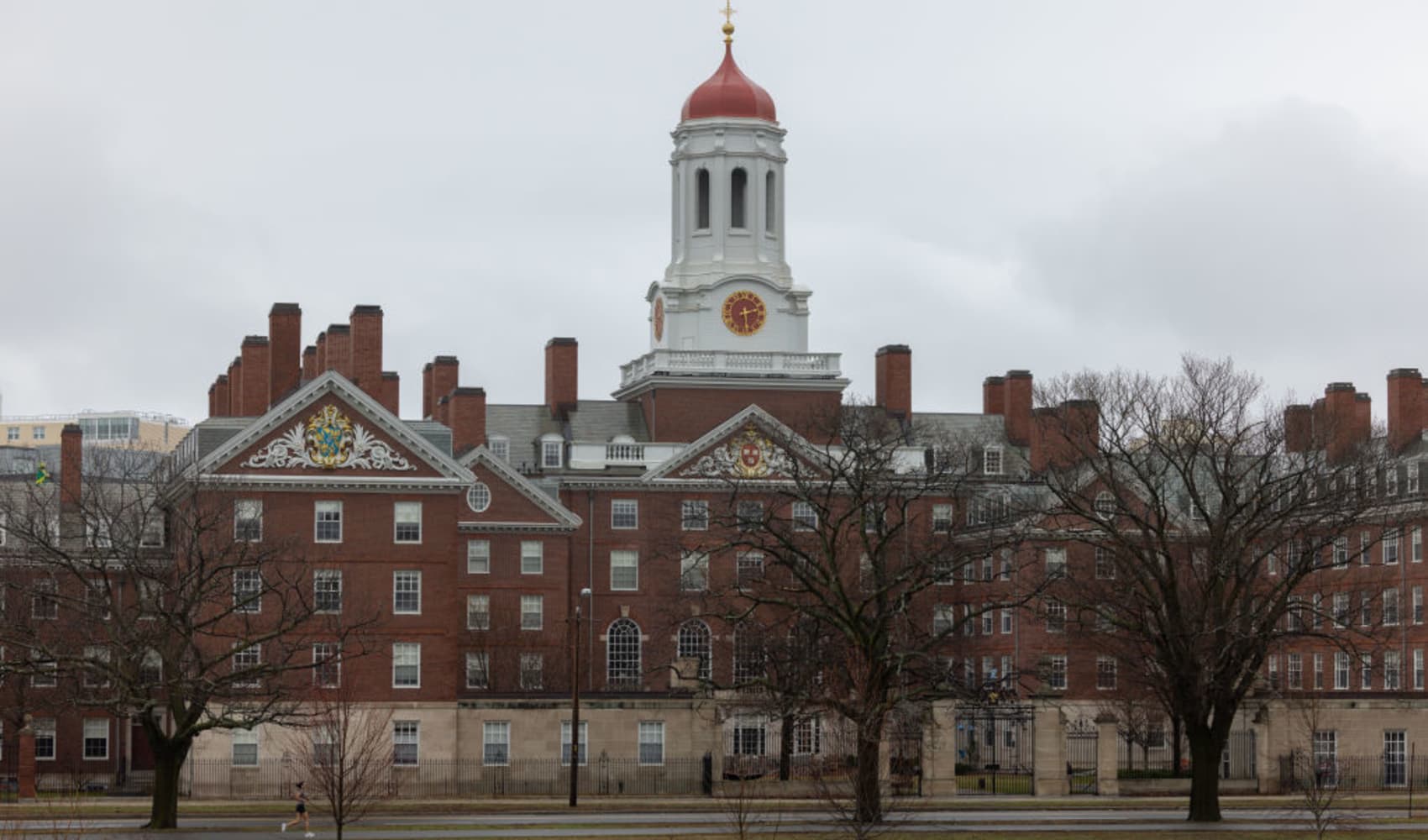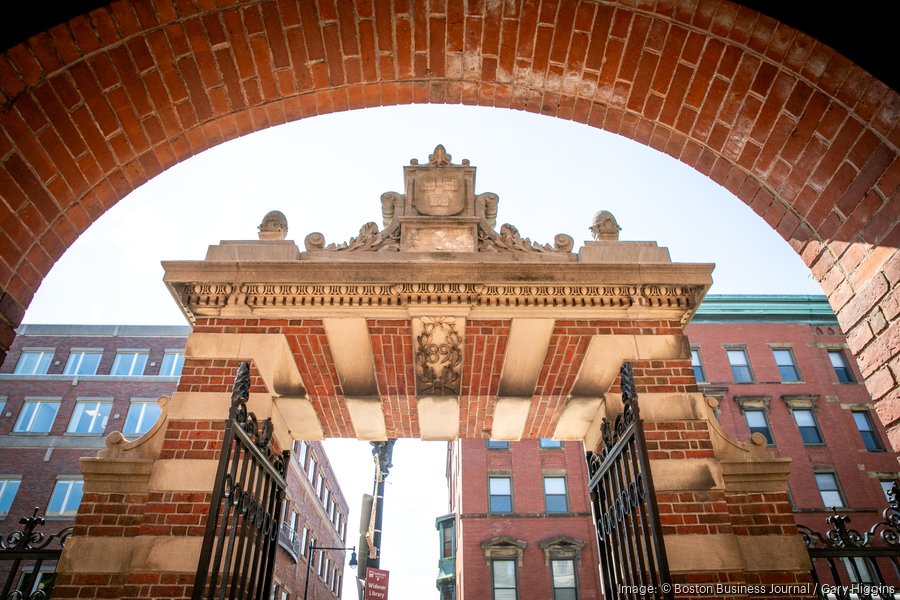Harvard University is challenging the Trump administration’s decision to bar the Ivy League school from enrolling foreign students, calling it unconstitutional retaliation for defying the White House’s political demands.
In a lawsuit filed Friday in federal court in Boston, Harvard said the government’s action violates the First Amendment and will have an “immediate and devastating effect for Harvard and more than 7,000 visa holders.”
Stream Connecticut News for free, 24/7, wherever you are.
“With the stroke of a pen, the government has sought to erase a quarter of Harvard’s student body, international students who contribute significantly to the University and its mission,” Harvard said in its suit.
The school said it has filed for a temporary restraining order to block the Department of Homeland Security from carrying out the move.
Get top local Connecticut stories delivered to you every morning with the News Headlines newsletter.
A federal judge in Boston blocked the Trump administration from "implementing, instituting, maintaining or giving effect to the revocation" of Harvard's Student and Exchange Visitor Program, meaning international students can remain enrolled at Harvard for now. A hearing on the matter has been scheduled for Tuesday.
Read the full lawsuit below:
The move has thrown campus into disarray days before graduation, Harvard said in the suit. International students who run labs, teach courses, assist professors and participate in Harvard sports are now left deciding whether to transfer or risk losing legal status to stay in the country, according to the filing.
The impact is heaviest at graduate schools such as the Harvard Kennedy School, where almost half the student body comes from abroad, and Harvard Business School, which is about one-third international.
Along with its impact on current students, the move blocks thousands of students who were planning to come for summer and fall classes.
Harvard said it immediately puts the school at a disadvantage as it competes for the world's top students. Even if it regains the ability to host students, “future applicants may shy away from applying out of fear of further reprisals from the government,” the suit said.
If the government's action stands, Harvard said, the university would be unable to offer admission to new international students for at least the next two academic years. Schools that have that certification withdrawn by the federal government are ineligible to reapply until one year afterward, Harvard said.
Harvard enrolls almost 6,800 foreign students at its campus in Cambridge, Massachusetts. Most are graduate students and they come from more than 100 countries.
The department announced the action Thursday, accusing Harvard of creating an unsafe campus environment by allowing “anti-American, pro-terrorist agitators” to assault Jewish students on campus. It also accused Harvard of coordinating with the Chinese Communist Party, contending the school had hosted and trained members of a Chinese paramilitary group as recently as 2024.
Harvard President Alan Garber earlier this month said the university has made changes to its governance over the past year and a half, including a broad strategy to combat antisemitism, He said Harvard would not budge on its “its core, legally-protected principles” over fears of retaliation. Harvard has said it will respond at a later time to allegations first raised by House Republicans about coordination with the Chinese Communist Party.
The threat to Harvard’s international enrollment stems from an April 16 request from Homeland Security Secretary Kristi Noem, who demanded that Harvard provide information about foreign students that might implicate them in violence or protests that could lead to their deportation.
Noem said Harvard can regain its ability to host foreign students if it produces a trove of records on foreign students within 72 hours. Her updated request demands all records, including audio or video footage, of foreign students participating in protests or dangerous activity on campus.
The suit is separate from the university’s earlier one challenging more than $2 billion in federal cuts imposed by the Republican administration.
Speaking at an unrelated event Friday, Boston Mayor Michelle Wu said she was "really glad" to see that Harvard had filed a lawsuit and is fighting back.
"It's another example of illegal and seemingly unconstitutional actions that the federal administration is taking, and its a direct attack on Boston and on our communities as well," the mayor said. "I am especially thinking about the many, many international students who come here, who are involved in our city, who are contributing to Boston and so many of the things that make our city special from research to volunteering or being involved in part of the fabric of who we are. So for these students, Boston is your home, too, and we are going to stand with Harvard as they fight this."
Rep. Stephen Lynch called the Trump administration's actions "asinine" and "wrong-headed," accusing the president of dragging the country down.
"It sends the wrong signal to the world about this area, this country. So you know foreign students have been a blessing to this country. Many of them stay, start businesses, they lift up our research, they become part of our city, and our country. It's just disgraceful that we're treating foreign students this way," Lynch said.
"It's just disgraceful. And attacking the press, attacking free speech, attacking the judges, arresting the judges, every other aspect of our country that makes us Americans is under attack," he added.
International students who spoke to NBC10 Boston at Harvard on Thursday said this all creates uncertainty, anxiety and fear.
“It means that international students like me can’t stay on their current visas and they either have to leave the country or transfer to another institution,” said Ivan Toth-Rohonyi.
“I would have to transfer to a different school to finish medical education, or I would have to continue my current visa, which is actually not Harvard-affiliated, I am sponsored by my start-up, and I would just have to keep on doing that but obviously that would be a bit of a derailment for my medical career,” explained William Shen.
Harvard Professor Ryan Enos said, “What this represents is an outrageous assault on a private institution in the United States over a political vendetta.”
Meanwhile, Harvard’s Commencement is scheduled for next week, with international students set to graduate unclear on how this may affect them.
Harvard Class of ‘28 President Anna Mulhern said, “I really don’t have the words for how devastating this is, how scary this is, there’s so much uncertainty.”
In a letter to the Harvard community Friday, Garber said, "Without its international students, Harvard is not Harvard."
Garber said as Harvard pursues legal remedies for this "unlawful and unwarranted action" that "imperils the futures of thousands of students and schools across Harvard," the university will do everything in its power to support its students and scholars.
"For those international students and scholars affected by yesterday’s action, know that you are vital members of our community. You are our classmates and friends, our colleagues and mentors, our partners in the work of this great institution," Garber wrote. "Thanks to you, we know more and understand more, and our country and our world are more enlightened and more resilient. We will support you as we do our utmost to ensure that Harvard remains open to the world."



